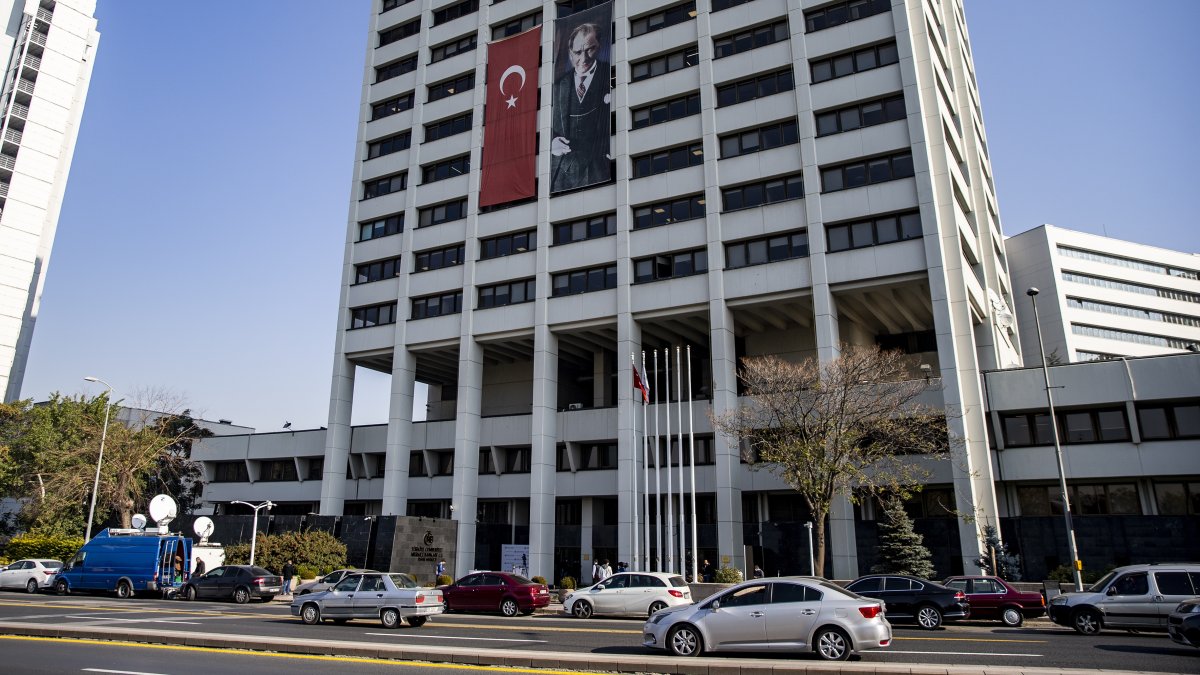Treasury and Finance Minister Mehmet Şimşek and Vice President Cevdet Yılmaz say the latest macroeconomic and financial indicators point to strengthened stability, improved investor sentiment and progress toward disinflation targets.
Both officials cited Thursday’s data that showed the Central Bank of the Republic of Türkiye’s (CBRT) gross foreign exchange reserves had reached $174.4 billion (TL 7.13 trillion) as of Aug. 8, the highest level on record.
Reserves rose 3.2%, or $5.38 billion, from the previous week’s $168.99 billion. CBRT officials on Thursday said the monetary authority would maintain its reserve accumulation policy.
“While the positive cycle in financial markets is strengthening, macro-financial stability is being consolidated,” Şimşek wrote on social media platform X on Thursday.
Vice President Yılmaz highlighted that higher foreign exchange reserves help reduce the country’s risk premium, which lowers external financing costs, and supports financial stability and the disinflation process.
He also pointed out that the current account deficit remains below projected levels, reducing the need for external financing.
Yılmaz went on to comment on the central bank’s new strategy announced Thursday, which separates the targets from its inflation forecast ranges in a new system aimed at boosting transparency and confidence.
The bank kept its target for this year at 24%, even though it is forecasting inflation of between 25% and 29%. Yılmaz said technical analyses supported that range.
Previously, the bank presented the target as the midpoint of the forecast range. Separating the goal and the range could give markets a clearer indication of where policy might be heading.
“Technical analyses indicate that by the end of the year, the inflation rate will fall within the central bank’s forecast range of 25%-29%. The disinflation process will gain strength as recent developments increasingly reflect in expectations,” he wrote on social media platform NEXT Social.
A separate survey by the CBRT on Friday showed that market participants’ year-end inflation expectations rose slightly to 29.69%. That compared to the 29.66% forecast in the July survey.
In contrast, expectations for inflation in 12 months time fell to 22.84% from 23.39%. The forecast for inflation in two years time also declined, falling to 16.92% compared to the August survey’s 17.08%.
The central bank is aiming to cut inflation to 16% by the end of next year and 9% by end-2027, CBRT Governor Fatih Karahan said on Thursday.
Annual consumer price inflation fell to 33.52% in July, sustaining a downward trend after peaking at 75% in May 2024.
“In an environment where financial stability is reinforced and the decline in inflation continues, we will persist in our efforts resolutely and in coordination, in line with our goals of sustainable growth and enhancing social welfare,” Yılmaz said.
Şimşek also referenced the latest status of the foreign exchange-protected deposit scheme, a costly measure introduced to shield Turkish lira deposits from currency depreciation. Authorities began phasing it out in 2023 as part of a shift toward more conventional economic policies.
Şimşek said the stock of the scheme, known as KKM, has been declining for two consecutive years, falling by TL 3 trillion. As of Aug. 8, it stood at TL 458.5 billion, down from nearly TL 478 billion the previous week, the data from the Banking Regulation and Supervision Agency (BDDK) showed on Thursday.
This marked the fastest weekly decline in three months. The scheme had peaked at TL 3.4 trillion in August 2023.
Under the scheme, individuals and businesses were able to deposit lira in special accounts that were protected against exchange rate losses. The lira lost 44% of its value against the dollar in 2021, 29% in 2022, 37% in 2023 and 16% last year. So far this year, it has depreciated by over 13%.
Officials and the central bank have said the scheme would be terminated by the end of 2025, though many bankers believe the exit could come even sooner.
Şimşek also reported that the share of lira in total deposits has risen to 59.6%. Additionally, yields on Türkiye’s 10-year dollar-denominated bonds have dropped below 7%.
He emphasized that the government continues to “resolutely” implement its medium-term program in line with disinflation targets to bolster economic resilience.

The Daily Sabah Newsletter
Keep up to date with what’s happening in Turkey,
it’s region and the world.
SIGN ME UP
You can unsubscribe at any time. By signing up you are agreeing to our Terms of Use and Privacy Policy.
This site is protected by reCAPTCHA and the Google Privacy Policy and Terms of Service apply.
